Belarus election: open-source election reports raise questions about official results
One local official recorded allegedly discussing
Belarus election: open-source election reports raise questions about official results
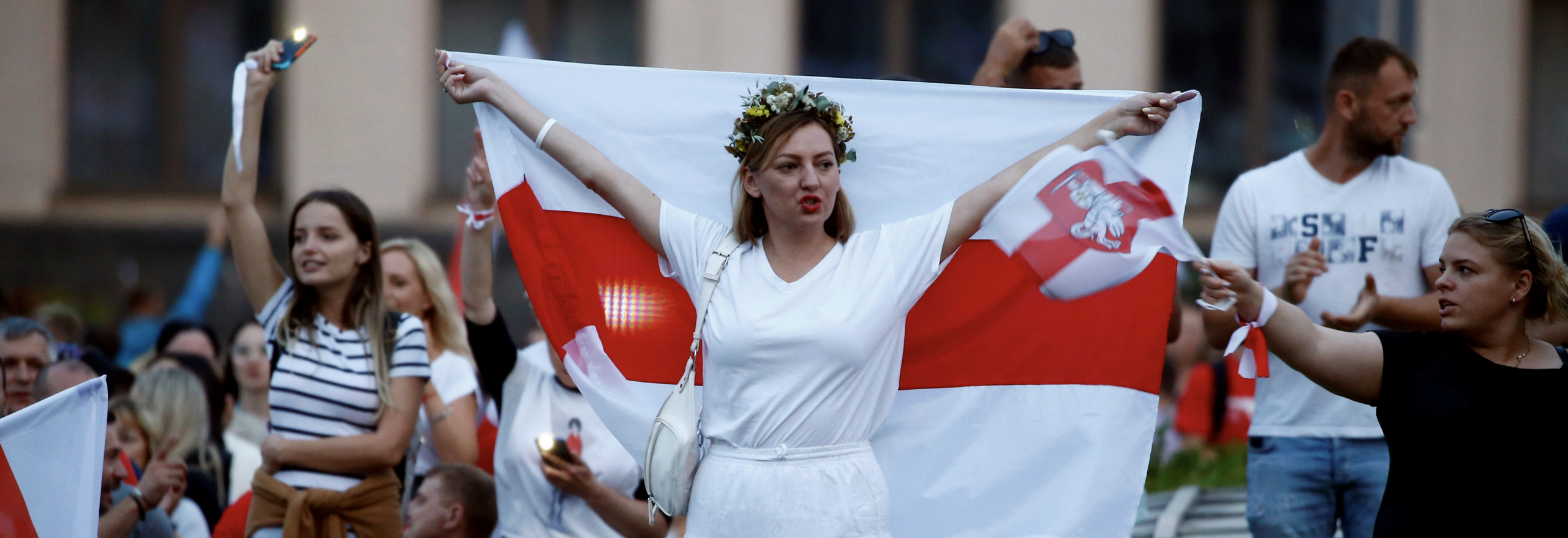
One local official recorded allegedly discussing interfering with results, while another reportedly died by suicide after refusing to certify tally
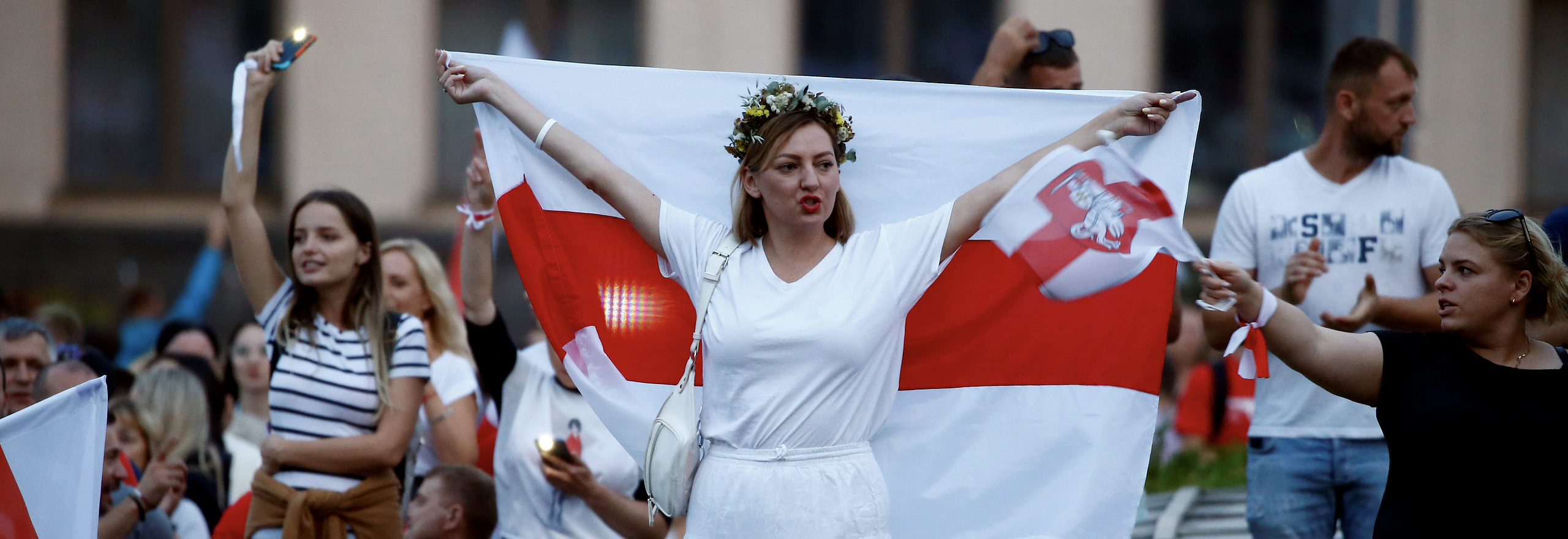
Amid widespread claims of electoral fraud in Belarus, activists are collecting open-source evidence, including photos of official election results from local electoral authorities, that raise additional questions about the official results. A verified audio recording from the 25th Vitebsk constituency, meanwhile, also suggested that at least some official election tallies may have been doctored in favor of incumbent President Alyaksandr Lukashenka, while an election official has reportedly died by suicide after refusing to certify an official tally.
According to the final results announced by the Central Election Committee of Belarus on August 14, Lukashenka received 80.1 percent of the votes to Sviatlana Tsikhanouskaya’s 10.1 percent. The lopsided election results, and the Belarusian people’s distrust in their veracity, has led to ongoing protests around the country. The situation has also led the international community to question Lukashenka’s legitimacy. Despite the state’s violent suppression of activists following the vote, additional protests have spread across the country, with opposition candidate Tsikhanouskaya calling for them to continue. One of the protesters’ demands is to have new, fair elections, a demand Lukashenka dismissed during a rally on Sunday, August 16.
A recount of the votes is most likely impossible, as social media reports suggest that the voting ballots were at least partly destroyed. No matter the outcome of the protests, it is highly likely that the political situation in Belarus will fundamentally change, especially with respect to talks with Russia regarding closer economic integration with Belarus.
Crowdsourced monitoring
Zubr, a Belarusian election-monitoring platform, asked its users on Telegram, Instagram, Facebook, Odonoklasniki, and VKontakte to share publicly available official tallies from constituencies around Belarus and abroad. Many users complied, particularly via Telegram, which has emerged as an important communications tool among opposition activists.
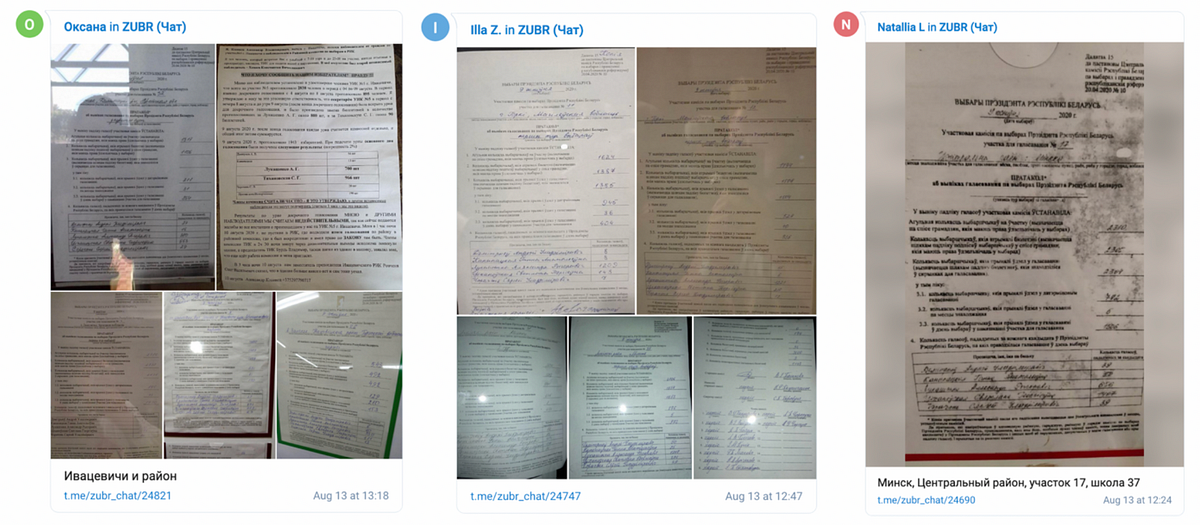
The DFRLab analyzed 100 random photos of official election tallies from across Belarus and abroad. As the sample was drawn from a limited collection of official vote results submitted by users, it is inherently biased and thus inconclusive. For example, if you simply went by the crowdsourced results, Lukashenka reportedly received 55 percent of the votes to Tsikhanouskaya’s 40 percent, with the remaining three candidates — Andrey Dmitriyeu, Hanna Kanapatskaya, and Siarhei Cherachen — apparently garnering 5 percent of the votes combined. The results are different from the official tally, but given the sample size, are not necessarily representative of the actual results, either. Meanwhile, there is no way to verify the authenticity of the crowdsourced results. So while the final voting percentages remain unknown, the mere fact that volunteers attempted to document local tallies via crowdsourcing demonstrates their lack of faith regarding the official results.
In Brest’s 10th constituency, for example, Lukashenka garnered 441 votes and Tsikhanouskaya garnered 443 votes. In a Mozyr constituency, Lukashenka garnered 608 votes and Tsikhanouskaya had 597 votes.
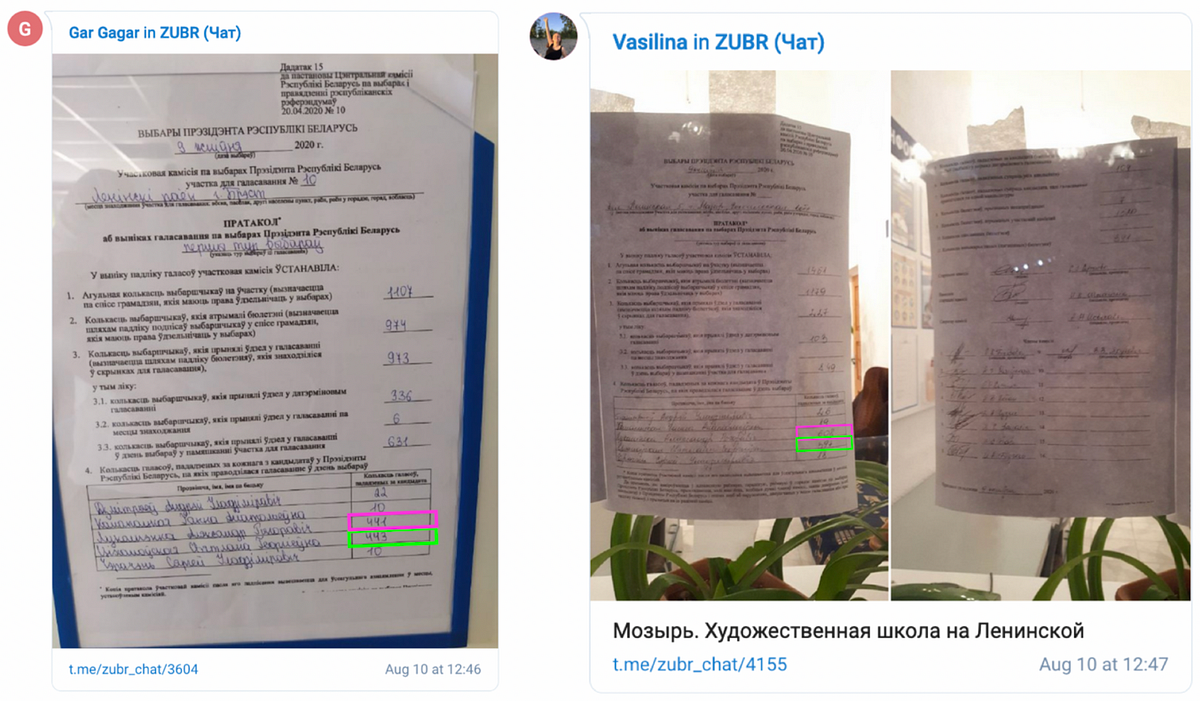
Some tallies showed clear victories for Tsikhanouskaya. For example, in The Hague, Netherlands, photos suggested the Belarusian diaspora had given Tsikhanouskaya 385 votes and Lukashenka just 18.
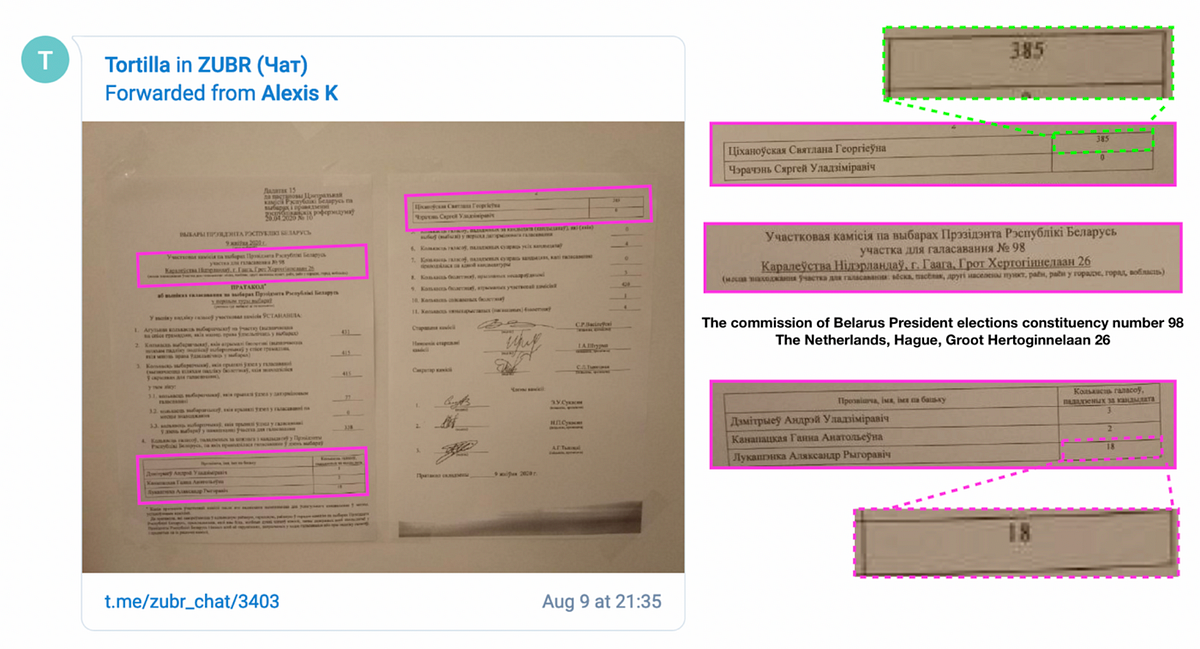
The lopsided victories per constituency were not isolated to the Belarusian diaspora. Back home in Tarasovo, Belarus, Tsikhanouskaya garnered 1,266 votes, while Lukashenka only received 153 votes.
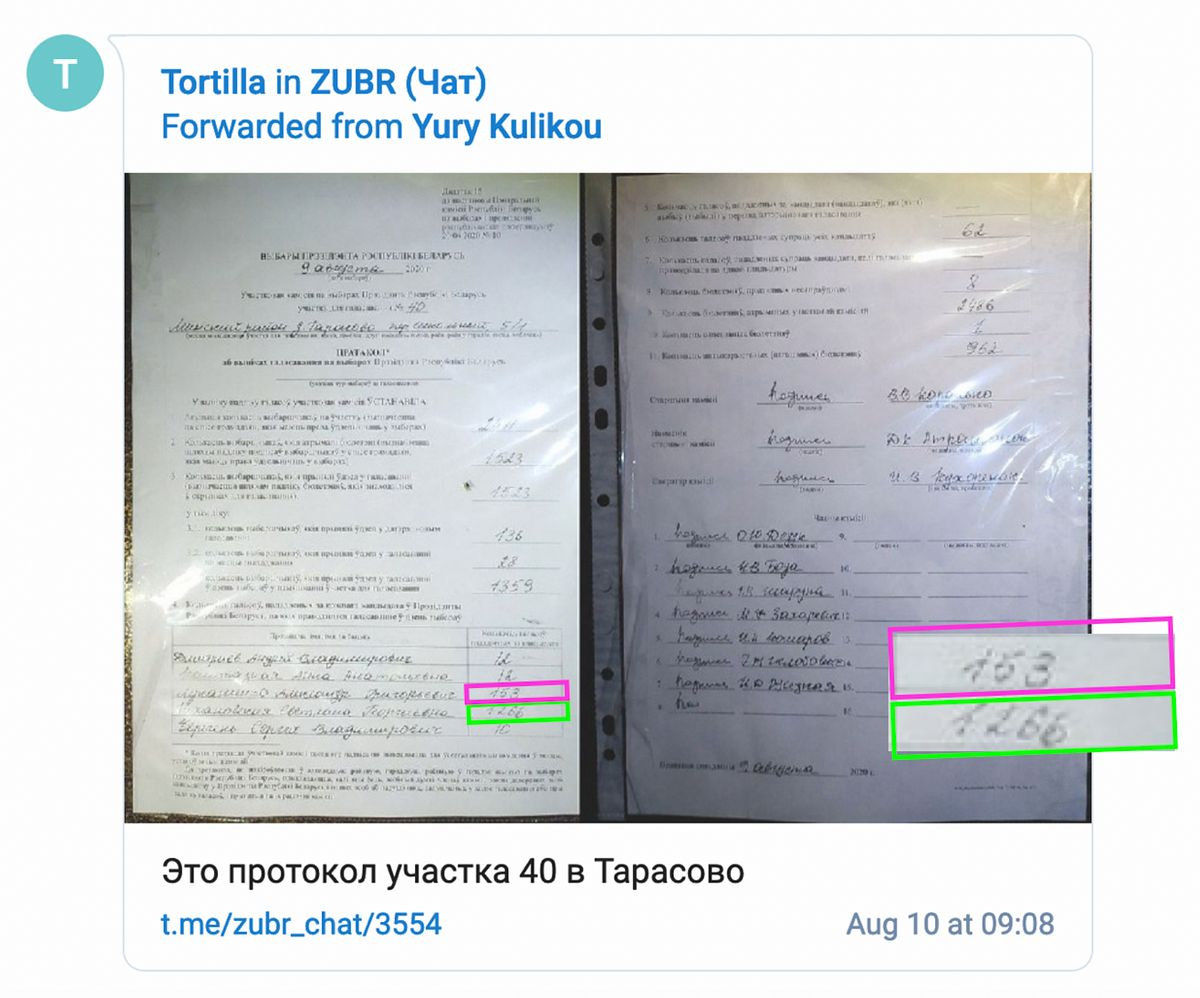
Overall, Tsikhanouskaya won in 26 of the 100 official tallies analyzed. Most of the other tallies showed overwhelming support for Lukashenka. For example, in Orsha city, constituency 43, Lukashenka garnered 1,608 votes to just 101 votes for Tsikhanouskaya. In Babruysk city, constituency 91, Lukashenka garnered 1,506 votes with 197 votes for Tsikhanouskaya.
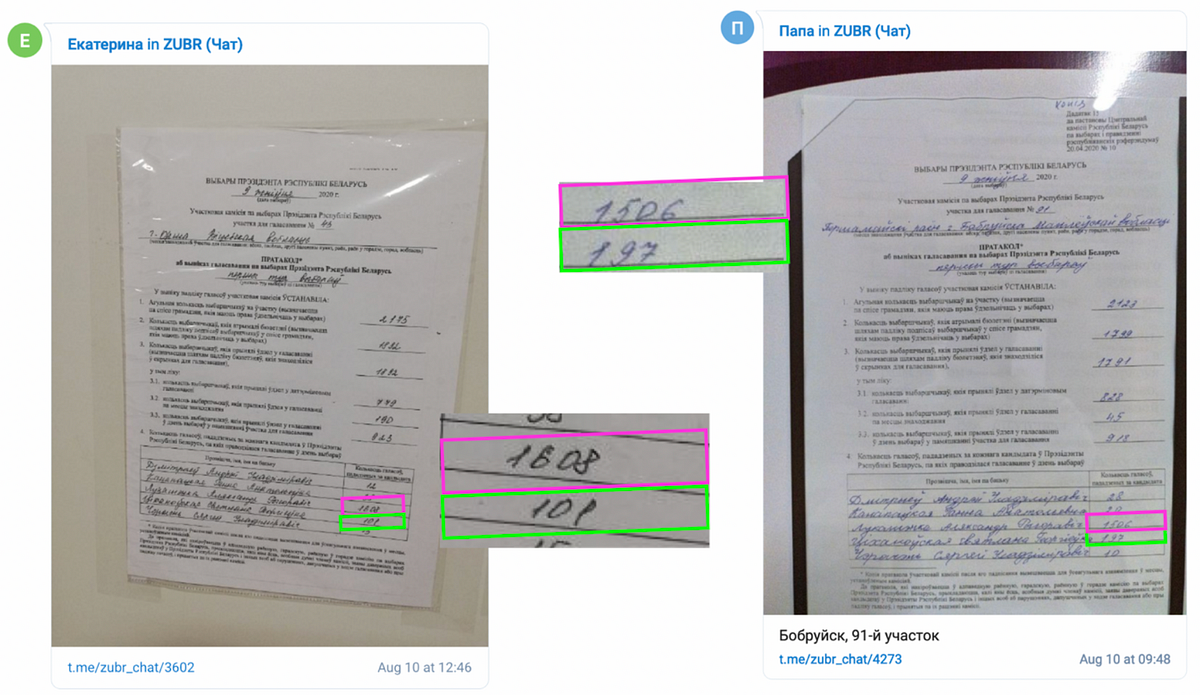
Change the tally, please
The day following the elections, the YouTube channel Belarus Lives Matter published an audio recording from Vitebsk’s 25th constituency. In the recording, Sergey Stashevsky, the head of the Oktyabrsk precinct in Vitebsk, can be heard requesting that the election commission change the official tally in favor of Lukashenka.
“I have a very tough proposal for you to change the protocol…and radically change the numbers between the third and fourth candidates,” Stashevsky says in the recording. “I am ready to agree that a sufficient number of people voted for Tsikhanouskaya. I will not explain reasons and even fantasize why. Someone voted at the behest of the heart, someone voted with the mind, some voted with a wallet. These are their problems. But here, we have other tasks and problems that we need to solve.”
https://youtu.be/DgkDrVj1qIo?t=180
There are at least two public testimonies that confirm the veracity of the audio recording. On August 12, Vitebsk regional newspaper Vitebsky Kuryer published an article in which the husband of a commission member stated that his wife had counted the votes correctly. According to the article, Lukashenka garnered 364 votes but Tsikhanouskaya had received 672. The commission then filled out the official election tally and submitted it to the Obtyabrsky executive commission in Vitebsk. At that point, Stashevsky reportedly pressured the election commission to change the results, but most of the commission members left the room, refusing to sign a new forged tally. With their departure, those who stayed and signed the revised tally nevertheless did not comprise a quorum, which would render the new tally ineligible. At that point, representatives of the Obtyabrsky executive commission attempted to coax some of the commission members who had left the room to sign it. The newspaper’s source, however, did not know the further outcome of the forged tally.
On August 12, Radio Svaboda, an independent Belarusian-language outlet, also confirmed the veracity of the audio recording with Sergey Stashevsky, who recognized his voice on the record. As of publication, there has been also no official response from Stashevsky about the recording.
A matter of conscience
Another media report alleging election tally interference came out on August 16. The story, published by Tut.by, concerned Konstantin Shismakov, head of the Vitebsk war history museum. According to his father, Shismakov attempted to resign following his refusal to sign off on the local election tally on August 9. On August 18, Tut.by reported that Shismakov was found dead, reportedly by suicide.

The audio recording Sergey Pitalenko and Shismakov’s death suggested that at least two official election tallies may have been forged in favor of Lukashenka, which, if true, would cast significant doubt on the entire electoral process.
Nika Aleksejeva is a Research Associate, Baltics, with the Digital Forensic Research Lab.
Follow along for more in-depth analysis from our #DigitalSherlocks.

